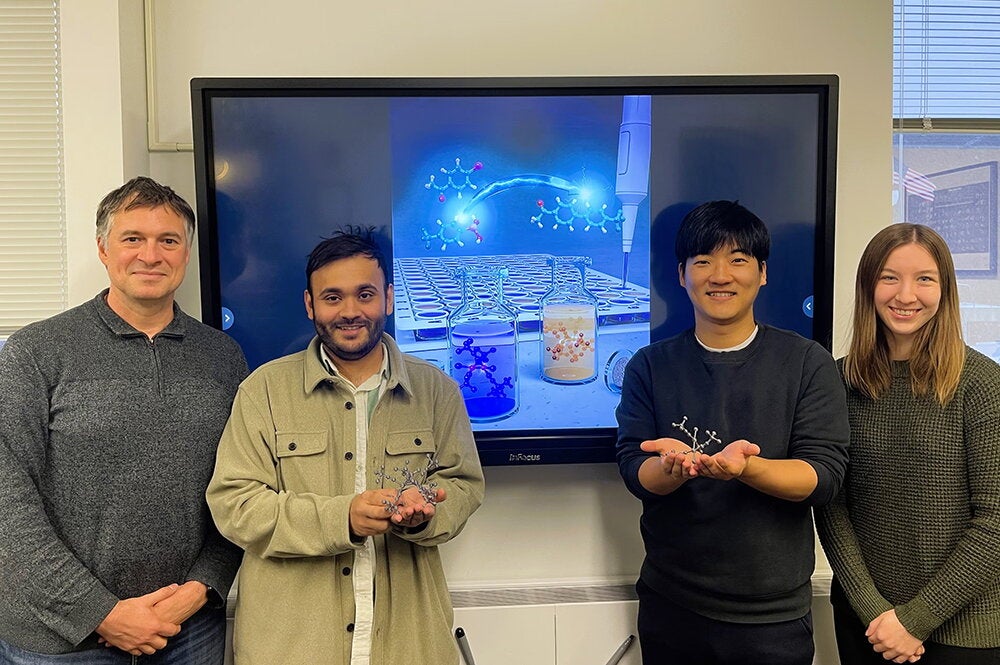
An unusual chemical reaction that allows malaria parasites and disease-causing bacteria to survive may be their downfall. Researchers at the U of I say they have developed a protein inhibitor that strikes at these bugs’ ability to create compounds necessary for life.
Researchers have long tried to understand an enzyme called IspH that’s essential for bacterial cell walls. Now, chemistry professor Eric Oldfield and his colleagues have engineered a chemical compound that laboratory tests indicate will put the brakes on IspH more powerfully than any previous enzyme inhibitor.
Oldfield’s inhibitor has not yet been tested in cells, but it’s still regarded as a significant development.
“There are a finite number of proteins unique to bacteria and malaria parasites that can be targeted for the development of new drugs. And everyone agrees that this enzyme, IspH, is a tremendous target,” Oldfield says.


